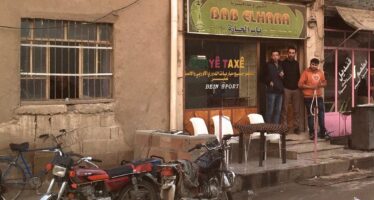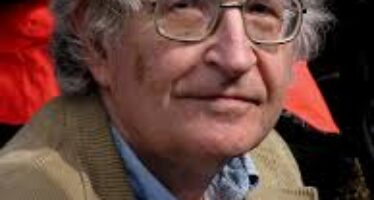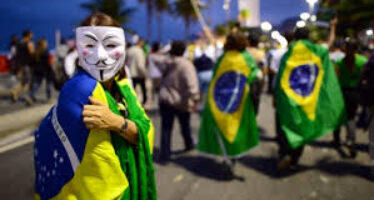Rojava Revolution – From Sewage to Civil Society…

![]()
“Once we have purged the terrorists (from Afrin) we will then cleanse them from Manbij, Ayn al-Arab, Tal Abyad, Ra’s al-Ayn and Qamishli.” Turkish president Recep Tayyip Erdoğan
Despite being surrounded on all sides by enemies, with Afrin taken and the ‘new’ regime there coming to world attention for its normalisation of brutality and human rights abuses, the ‘Rojavan Revolution’ continues to move forward in an uncertain environment…
…rebuilding with great difficulty (including “repair to electricity, rehabilitation of schools and the treatment of water and sanitation…”)
…from the sewage system in Raqqa to the difficult work of educating for democracy and “to strengthen the active role of civil society institutions in the management and leadership of society and to promote it towards further progress and development”…
…not to forget new agricultural plans to support the agricultural sector in Tabqa…
…rebuilding with great difficulty what was so easily destroyed and working to change the face of this tormented region without gaining much attention.
A lot of these initiatives and hard work in relation to enhancing “democracy” could well be examined by our own so called developed western democracies where political participation is falling and the gap between the political apparatus and its operatives (politicians and bureaucrats) and the citizens is turning into a chasm.
Not so in the Democratic Federation of Northern Syria (Rojava) where the recent passing of legislation to enhance and protect the rights of women is one recent example of some of the necessary and radical steps taken to forge a new and vital society from the ruins of the old and where participation and equality are at the core of the process.
The Syrian Democratic Forces media center recently released details from the Legislative Council of Tabqa city who held a meeting in Tabqa Civil Council, attended by representatives of the Civil Administration and the Women’s Council, “in which the Women’s Law was approved.”
Tabqa (Al-Thawrah) is a city located in in the western countryside of the Raqqa Governorate of Syria, approximately 55 kilometres (34 miles) west of Raqqa city, on the banks of the Euphrates River and has been home to humans since ancient times.
The name “al-Thawrah” literally means “The Revolution”, in reference to the March 8th Revolution (1963). “The city had a population of 69,425 as of the 2004 census.”
Tabqa also centered largely in the SDF and Kurdish assault on ISIS / Daesh (supported by the United States military), known as the Battle of Tabqa (2017) – an operation, part of the Raqqa campaign (2016–2017), Operation Wrath of Euphrates, to recapture and secure Tabqa Dam, al-Thawrah city (Tabqa), Tabqa Airbase, and the surrounding countryside from ISIS… The attack began on 22 March 2017, and control of Tabqa and the Tabqa Dam had been achieved by 10 May 2017.
With ISIS/Daesh now largely routed, at least in this region, and despite Turkey’s endless threats against the predominantly Kurdish territory, the work of now creating a vibrant democracy where once was only oppression, could well be a lesson for its belligerent neighbours, Turkey and Iran, to learn from and for the world to stand up and take notice….
The Constitution of the Rojava Cantons
Preamble
We, the people of the Democratic Autonomous Regions of Afrin, Jazira and Kobane, a confederation of Kurds, Arabs, Syrics, Arameans, Turkmen, Armenians and Chechens, freely and solemnly declare and establish this Charter.
In pursuit of freedom, justice, dignity and democracy and led by principles of equality and environmental sustainability, the Charter proclaims a new social contract, based upon mutual and peaceful coexistence and understanding between all strands of society. It protects fundamental human rights and liberties and reaffirms the peoples’ right to self-determination.
Under the Charter, we, the people of the Autonomous Regions, unite in the spirit of reconciliation, pluralism and democratic participation so that all may express themselves freely in public life. In building a society free from authoritarianism, militarism, centralism and the intervention of religious authority in public affairs, the Charter recognizes Syria’s territorial integrity and aspires to maintain domestic and international peace.
In establishing this Charter, we declare a political system and civil administration founded upon a social contract that reconciles the rich mosaic of Syria through a transitional phase from dictatorship, civil war and destruction, to a new democratic society where civic life and social justice are preserved.” (The Social Contract of the Rojava Cantons in Syria)
…for example. Likewise:
“Rojava has been lauded by leftists all around the world to be some kind of communal, confederal socialist utopia unparalleled by anything else existing around the world right now, so the question of how the economy in such a mystical place might be organized seems to be an important one, and it already has been the source of much controversy, both in and outside Rojava.”
“When the regime forces left town after town in Rojava beginning 19th of July 2012 the state companies were expropriated and the councils took over control of the agricultural land. The new administration was built around newly created communes that mostly consisted of a village and the surrounding hamlets. The communes distributed the land among its families according to need and ability to manage it, some pieces of land remained in the hands of the higher councils to become ground zero for the first cooperatives…”
As regards the situation of women in the ‘new society’
The SDF Media Centre has recently published a section of the new law that guarantees and enhances the role of women in Syrian society:
The new law has 26 sections
…including “the special legal penalty when violating any article.”
“The most important of which:
1- Fighting the reactionary authoritarian mentality in society.
2 – Equality between men and women in all aspects of life.
3 – Equality between the testimony of women and the testimony of men.
4 – It is forbidden to marry a girl without her consent, as it is forbidden to marry a minor, Shagar marriage and marriage of blood.
5 – Criminalization of murder under the pretext of honor and criminalization of the trafficking of children and women in all its forms.
6 – Violence and discrimination against women are prohibited and are considered punishable offenses.
7 – To grant women and men equal rights with regard to the Nationality Law.
8 – It is forbidden to marry the girl before she reaches the age of eighteen.
9 – Women have the right to custody of their children up to the age of 15 years.
10 – Working women have the right of full paid maternity leave.” (SDF Media Centre)
Put this into the context where over half a billion women in the Muslim world of the Middle East exist on the margins of society, their social status is low, discrimination is enforced equally by men, religion and oftentimes the law itself. In Saudi Arabia, for instance, women need to dress more conservatively and need to obey their father, brother, or other male relatives. In Saudi Arabia there are also separate schools for boys and girls. In general across the region women’s rights are restricted including being forced to undergo female circumcision while the ‘philosophy’ and practice of honour killing, along with widespread violence against women, continues. And on and on…
Whereas under the new social contract in Rojava: Article 27 states:
Women have the inviolable right to participate in political, social, economic and cultural life.
And Article 28:
Men and women are equal in the eyes of the law. The Charter guarantees the effective realization of equality of women and mandates public institutions to work towards the elimination of gender discrimination.
….As Meredith Tax said: “Imagine what a liberated area with a secular, egalitarian approach to women, governance, economics, land usage, and ecological sustainability could mean for the Middle East. Kurdistan has borders in Iran, Iraq, Syria, and Turkey; if Rojava can survive, dissidents from the whole region will have a place they can run to escape forced marriages and get a secular education—for Rojava has started its own university, the Mesopotamian Academy of Social Sciences, which is now holding a book drive.”
Where to from here?
Another recent headline from the SDF Media Centre surely summed up the complex situation in Northern Syria, simply: Life will continue … despite the pain…
And while the statement was referring to: “the wounds left by the war in Raqqa city” and where:
“…despite the tragedies and various physical injuries as a result of mines and missiles that its people have suffered, remains hope, and remains the determination of the sons of Raqqa city to live…”
…it could well apply to the courageous work of those in Western Kurdistan struggling to build a society of participatory democracy from the ruins of invasion, “terror” and civil war, surrounded by enemies with a prehistoric view of how societies should be organised, as well as also keenly demonstrating unspeakable cruelty and brutality in their ability to maintain themselves…
…and likewise our own so called liberal democracies / “the international community”, playing their own cynical games that merely show the extent of their historical redundancy until “we” in the “West” have our own (or our next), genuine, revolutionary transformation in democratic structures that will bring in a more just and equal order as well as engage the mass of its citizens in taking part in the forward movement of all our societies into an uncertain future.
“In short, the Rojava revolution is fulfilling the dreams of Arab Spring—and then some. If its ideas can be sustained and can prevail against ISIS, Kurdish nationalism, and the hostile states surrounding the cantons, Rojava will affect the possibilities available to the whole region. So why isn’t it getting more international support?” (Meredith Tax)
Why is the Democratic Federation of Northern Syria not getting more international support?
In a discussion with the Kurdish Women’s Movement during her visit to Rojava, Meredith Tax (“we need to learn from them—and help”) was told what the ‘Rojavan Revolution’ needs to survive and grow:
- A massive international solidarity campaign, beginning with political education about the evolution of the PKK and its politics, including its emphasis on democratic governance, anti-sectarianism, secularism, ecology, and women’s liberation.
- All possible international pressure to be put on Turkey and the KRG to end the embargo and let supplies through.
- They need the terrorist designation to be lifted so they can travel and raise money and do public speaking. Their representatives should be allowed into the United States and other Western countries; though neither the PYD nor other Rojava groups are actually on the terrorist list, they are damned because of their relationship to the PKK.
- Abdullah Ocalan should also be released from jail to lead peace negotiations with Turkey.
All of which, and more, much more, apply as much today as in early 2015. And even moreso with the now near ending of the Syrian civil war.
That said:
“Rojava is developing a progressive model for gender equality, religious and ethnic freedom, and participatory democracy unlike anything seen in the region. It has the potential to secure far greater social justice than the simplistic reforms suggested by some in the opposition – which I suspect is why, perversely, it has so few international allies in spite of massive popular support on the ground.” (Margaret Owen)
“The dream of the Middle Eastern uprisings, of the Syrian revolution, will perish if the Syrian people do not take up the cause of Democratic Autonomy and confederal revolution. The Federation at the same time must greatly improve its public outreach and make its ideals, its ideas, its hope known to the greater public in the Middle East. More honest and more critical media outlets are needed for that.” The Internationalist Commune of Rojava has said wisely…
Time those with a commitment to social change, to social transformation started taking notice of what “revolution” might mean, in this new era of the 21st century?
Revolution – ? – The philosophers have only interpreted the world, in various ways; – the Kurds are changing it…
séamas carraher
Image:
Sewing cooperative, Derik
By Janet Biehl
Video:
Eyewitness Rojava Revolution – accounts from participants and Janet Biehl
https://www.youtube.com/watch?v=Ck585zuJnzA
“In Northern Syria ISIS has been driven back by people fighting for a society based on principles of direct democracy, gender equality, and sustainability. From their revolution in 2012 they have created a de facto autonomous region in which these ideas are being implemented. The region is known to Kurds as Rojava and these events are commonly referred to as the Rojavan revolution, reflecting the fact that the revolution was initiated and led by Kurdish forces, even though now they are building a much broader coalition known as the Syrian Democratic Force. The political system of Rojava is inspired by democratic confederalism and communalism. It is influenced by anarchist and libertarian principles, and is considered by many a type of libertarian socialism. The basic unit at the local level is the community which pools resources for education, protection and governance. At a national level communities are unrestricted in deciding their own economic decisions on who they wish to sell to and how resources are allocated. There is a broad push for social reform, gender equality and ecological stabilization in the region.” (Workers Solidarity Movement)
David Graeber on his visit to Rojava where a new kind of society is developing
https://www.youtube.com/watch?v=Yj8Kww3hCus
Read
YPG International, (Information on the Rojavan Revolution)
http://ypg-international.org/rojava/
Meredith Tax (The Revolution in Rojava, April, 2015)
https://www.dissentmagazine.org/online_articles/the-revolution-in-rojava
Margaret Owen (Gender and justice in an emerging nation: My impressions of Rojava, Syrian Kurdistan, February 2014)
https://ceasefiremagazine.co.uk/gender-justice-emerging-nation-impressions-rojava-syrian-kurdistan/
David Graeber (Why is the world ignoring the revolutionary Kurds in Syria? October, 2014)
Download
Karl Marx, ‘Theses On Feuerbach’ (PDF)
“The philosophers have only interpreted the world, in various ways; the point is to change it.”
Murray Bookchin ‘Social Ecology and Communalism (PDF)
“Let us make sure these ideas get the attention they deserve, and help create the free society that Bookchin never had the privilege to see come into being. Creating a new radical movement, and indeed a new society, is an immense project that can not be taken lightly. As Bookchin himself wrote in Re-enchanting Humanity: ‘The achievement of freedom must be a free act on the highest level of intellectual and moral probity, for if we cannot act vigorously to free ourselves, we will not deserve to be free.’”
(Additional Link to the PDF above:
http://new-compass.net/sites/new-compass.net/files/Bookchin%27s%20Social%20Ecology%20and%20Communalism.pdf)
Related Articles
# RiseUp4Rojava – Call for global days of action on 27 and 28 January 2019
![]()
#RiseUp4Rojava – Defending the revolution together – Call for Global Days of Action on 27 and 28 January 2019
On Academic Labor
![]()
How Higher Education Ought to Be
The following is an edited transcript of remarks given by Noam Chomsky via Skype on 4 February 2014 to a gathering of members and allies of the Adjunct Faculty Association of the United Steelworkers in Pittsburgh, PA. Prof. Chomsky’s remarks were elicited by questions from Robin Clarke, Adam Davis, David Hoinski, Maria Somma, Robin J. Sowards, Matthew Ussia, and Joshua Zelesnick. The transcript was prepared by Robin J. Sowards and edited by Prof. Chomsky.
On hiring faculty off the tenure track
That’s part of the business model. It’s the same as hiring temps in industry or what they call “associates” at Wal-Mart, employees that aren’t owed benefits. It’s a part of a corporate business model designed to reduce labor costs and to increase labor servility. When universities become corporatized, as has been happening quite systematically over the last generation as part of the general neoliberal assault on the population, their business model means that what matters is the bottom line. The effective owners are the trustees (or the legislature, in the case of state universities), and they want to keep costs down and make sure that labor is docile and obedient. The way to do that is, essentially, temps. Just as the hiring of temps has gone way up in the neoliberal period, you’re getting the same phenomenon in the universities. The idea is to divide society into two groups. One group is sometimes called the “plutonomy” (a term used by Citibank when they were advising their investors on where to invest their funds), the top sector of wealth, globally but concentrated mostly in places like the United States. The other group, the rest of the population, is a “precariat,” living a precarious existence.
Brasil, fútbol y protestas
![]()
Es poco probable que los brasileños obedezcan a la procaz consigna que lanzó Michel Platini –otrora gran futbolista y hoy





